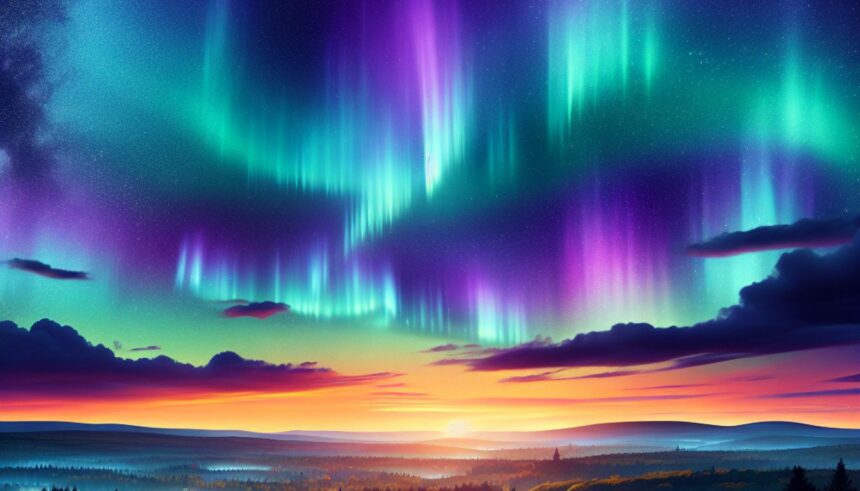If you’ve been dreaming of witnessing the ethereal dance of colors in the sky, there’s good news: the northern lights, or aurora borealis, might soon grace the skies above Massachusetts. Known for its captivating visual display, the phenomenon promises a mesmerizing experience for skywatching enthusiasts.
Understanding the Aurora Borealis
The northern lights are a stunning natural phenomena resulting from collisions between Earth’s atmosphere and particles from the sun. This collision creates energy, releasing colorful lights that can be seen from specific geographic locations. Though typically visible in high-latitude regions, certain geomagnetic conditions can push the aurora south to places like Massachusetts.
Current Aurora Forecast for Massachusetts
Recent aurora forecasts suggest increasing solar activity, which might lead to potential sightings in Massachusetts. Enthusiasts should monitor real-time sky forecasts and be prepared for spontaneous skywatching excursions. Ideal locations for viewing include areas with minimal light pollution such as coastal regions, state parks, or elevated areas.
Best Times to View the Northern Lights
The visibility of the aurora borealis largely depends on the solar cycle and atmospheric conditions. Generally, the ideal timeframe for spotting them in Massachusetts is between September and April. During these months, the nights are longer and darker, offering a better backdrop for the aurora displays.
Photographing the Aurora Borealis
Capturing the northern lights on camera requires specific techniques due to the varying intensities and movement of the lights. Photographers recommend using a DSLR camera with manual mode capability, a tripod, and a long exposure setting. It’s crucial to plan your photography session in advance, considering the weather and moon phases, to increase the chance of capturing clear, vibrant images.
Historical Sightings and Cultural Impact
In Massachusetts, historical aurora sightings have inspired local culture and art, influencing everything from traditional storytelling to modern digital media. Indigenous tribes in the area have their own interpretations and legends surrounding the northern lights, seeing them as significant spiritual symbols.
Scientific Research and Studies
Local universities and research centers in Massachusetts often conduct studies on the aurora borealis, seeking insights into the broader implications of solar activity on our planet’s magnetic field. These studies contribute to our understanding of both the aurora and its potential impact on Earth’s weather systems and communication technologies.
Community Events and Skywatching Groups
Several community groups and astronomy clubs in Massachusetts organize night-time events dedicated to observing the northern lights. These gatherings provide opportunities for both novices and experienced skywatchers to learn more about the phenomenon and to share tips on the best viewing techniques.
In conclusion, while the appearance of the northern lights in Massachusetts is a rare and unpredictable event, the upcoming aurora forecast brings hope to many enthusiasts. By staying informed through reliable aurora forecasts and preparing with the correct equipment, you can increase your chances of experiencing one of nature’s most magical displays.







